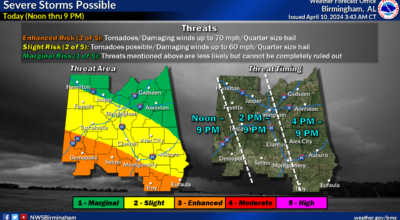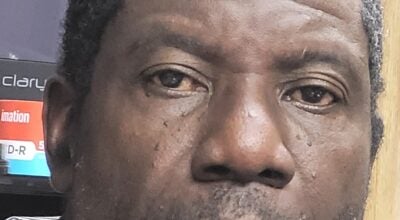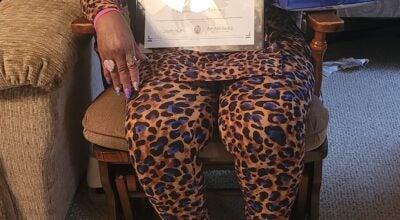In 5-3 decision, Supreme Court sides with state
Published 1:45 pm Friday, October 23, 2020
|
Getting your Trinity Audio player ready...
|
In a 5-3 decision, the U.S. Supreme Court on Wednesday night sided with Alabama Secretary of State John Merrill in banning curbside voting in the state, an option previously being considered in some Alabama counties to cater to vulnerable voters amid the ongoing COVID-19 crisis.
The possibility of curbside voting was left in place after an appeals court ruled last week that voters would not be exempted from absentee ballot requirements for proof of identification and a witness.
Merrill vowed to take the curbside voting issue before the Supreme Court following the appeals court ruling and called Wednesday’s decision “a win for the people of Alabama.”
“I am proud to report that the U.S. Supreme Court has now blocked a lower court’s order allowing the fraudulent practice of curbside voting in the State of Alabama,” Merrill said in a statement released following the decision Wednesday night. “During the COVID-19 pandemic, we have worked diligently with local election officials in all 67 counties to offer safe and secure voting methods, including through the in-person and mail-in processes. I am glad the Supreme Court has recognized our actions to expand absentee voting, while also maintaining the safeguards put into place by the state Legislature.”
Merrill added that recent record-breaking voter participation numbers indicate that the state’s precautions are working and not putting in place barriers to the ballot box.
“The fact that we have already shattered voter participation records with the election still being 13 days away is proof that our current voting options are easy, efficient and accessible for all of Alabama’s voters,” Merrill said in the Wednesday statement. “Tonight’s ruling in favor of election integrity and security is once again a win for the people of Alabama.”
The original court case that resulted in Wednesday’s ruling was filed in May by the Southern Poverty Law Center (SPLC) and other organizations on behalf of at-risk voters who challenged the state’s ban on curbside voting.
A federal district court ruled that the ban violated the Americans with Disabilities Act (ADA) and asserted that a policy allowing counties to offer curbside voting, but not requiring them to do so, was within reason under the strictures of the law.
The ruling was upheld by a federal appeals court, which also struck down the removal of absentee ballot requirements, which were challenged as a threat and impediment to older and at-risk voters, and the state appealed to the Supreme Court to block the decision from taking effect.
For her part, SPLC Senior Staff Attorney Caren Short blasted the ruling as an attack on voting rights amid a global public health crisis.
“Once again, the Supreme Court’s ‘shadow docket’ – where orders are issued without written explanation – has curtailed the voting rights of vulnerable citizens amidst a once-in-a-century public health crisis,” Short said in a statement issued Wednesday night. “After a two-week trial, a federal judge allowed counties in Alabama to implement curbside voting so that high-risk voters could avoid crowded polling locations. Tonight’s order prevents Alabama counties from even making the decision for themselves. Already common in state across the South and the country before 2020, curbside is practice now encouraged by the Centers for Disease Control and Prevention (CDC). It should be a no-brainer to implement everywhere during a pandemic; the Alabama Secretary of State unfortunately disagrees, as does the Supreme Court of the United States.”
Supreme Court Justices Stephen Breyer, Elena Kagan and Sonia Sotomayor dissented, with Sotomayor writing on behalf of the three that Merrill, despite his appeal, knows that plaintiffs in the case have disabilities that make them more vulnerable to COVID-19 and that in-person voting would increase their risk of exposure.
Sotomayor focused on one plaintiff in the case, Howard Porter Jr., an Alabama man in his 70s with multiple pre-existing conditions in the dissent, a point not lost on Short and the SPLC>
“Justice Sonia Sotomayor’s dissent powerfully quotes on of our clients, Howard Porter Jr., a Black Alabamian with asthma and Parkinson’s Disease in his seventies: ‘[So] many of my [ancestors] even died to vote. And while I don’t mind dying to vote, I think we’re past that – we’re past that time,” Short wrote in the statement.





